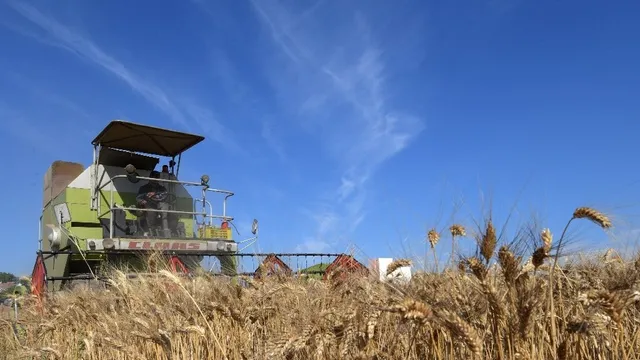Tunisian Farmer Adapts to Climate Change, Embracing Old Wheat
Tunisian wheat farmer Hasan Chetoui is turning to ancient wheat varieties to tackle the adversities of climate change, particularly the challenges posed by drought. Confronting years of insufficient rainfall and destructive heatwaves that took a toll on his crops in the previous year, Chetoui is embarking on an experiment with traditional wheat varieties. The goal is to enhance resilience to the evolving climate.
While he acknowledges the limited universal applicability of this approach, Chetoui envisions it as a potential solution to navigate the difficulties presented by increasingly unpredictable weather patterns. His farm, located in the Borj Al-Amri area of northern Tunisia, has a historical significance as a breadbasket for Mediterranean civilizations.
Now contending with the repercussions of climate change, Chetoui is delving into alternative and traditional seeds to secure a consistent level of wheat production, even during challenging years. Agricultural experts approach the success of using old wheat varieties cautiously, highlighting that modern kinds of wheat generally yield higher production. However, they also recognize the potential suitability of older varieties under specific conditions, viewing Chetoui’s efforts as a valuable experiment worth consideration.
Chetoui is exploring alternative and traditional seeds to ensure some level of wheat production, even during challenging years. Agricultural experts approach the success of using old wheat varieties with caution, noting that modern wheats generally yield higher production. However, they also recognize the potential suitability of older varieties under specific conditions, viewing Chetoui’s efforts as a valuable experiment worth consideration.



















